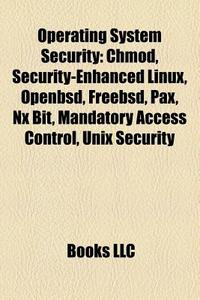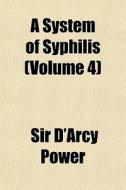
Operating system security
Chmod, Security-Enhanced Linux, FreeBSD, OpenBSD, PaX, NX bit, Mandatory access control, Comparison of privilege authorization features, Unix security
- Editore:
Books LLC, Reference Series
- EAN:
9781157439523
- ISBN:
1157439527
- Pagine:
- 72
- Formato:
- Paperback
- Lingua:
- Inglese
Descrizione Operating system security
Source: Wikipedia. Pages: 69. Chapters: Chmod, Security-Enhanced Linux, FreeBSD, OpenBSD, PaX, NX bit, Mandatory access control, Comparison of privilege authorization features, Unix security, XTS-400, Address space layout randomization, OpenVZ, Privilege escalation, OpenBSD security features, Executable space protection, BoKS, Operating system-level virtualization, Grsecurity, Security-focused operating system, Superuser, AppArmor, Capability-based addressing, Cgroups, Generic Security Services Application Program Interface, Security-evaluated operating system, Cacls, Ssh-keygen, Exec Shield, Sandbox, RSBAC, Microsoft Baseline Security Analyzer, Solaris Trusted Extensions, Process isolation, Type enforcement, Libwrap, Security descriptor, SetACL, Toor, Simplified Mandatory Access Control Kernel, W^X, OpenBSM, Resource Access Control Facility, Chown, Hardened Gentoo, Runas, Partitioning Communication System, Anonym.OS, Reference monitor, Trusted operating system, Immunix, Untrusted, Bastille Unix, ACF2, Chgrp, Openwall Project, LXC, FLASK, C-list, Kinsmod, Annvix, Secure operating system. Excerpt: FreeBSD is a free Unix-like operating system descended from AT&T UNIX via BSD UNIX. Although for legal reasons FreeBSD cannot be called "UNIX", as the direct descendant of BSD UNIX (many of whose original developers became FreeBSD developers), FreeBSD's internals and system APIs are UNIX-compliant. Thanks to its permissive licensing terms, much of FreeBSD's code base has become an integral part of other operating systems such as Mac OS X that have subsequently been certified as UNIX-compliant and have formally received UNIX branding. With the exception of the proprietary Mac OS X, FreeBSD is the most widely used BSD-derived operating system in terms of number of installed computers, and is the most widely used freely licensed, open-source BSD distribution, accounting for more than three quarters of all installed systems running free, open-source BSD derivatives. FreeBSD is a complete operating system; the kernel, device drivers, and all of the userland utilities, such as the shell, are held in the same source code revision tracking tree. (This is in contrast to Linux distributions, for which the kernel, userland utilities, and applications are developed separately, and then packaged together in various ways by others.) Third-party application software may be installed using various software installation systems, the two most common being source installation and package installation, both of which use the FreeBSD Ports system. FreeBSD has been characterized as "the unknown giant among free operating systems" and is widely regarded as reliable and robust. In a Netcraft survey published 1 March 2011, the top three most reliable Web hosting company sites for the month of February 2011 (the most recent month for which figures are available as of March 2011) were all found to be running FreeBSD on their servers. FreeBSD development began in 1993 with a quickly growing, unofficial patchkit maintained by users of the 386BSD operating system. This patchkit forked from 386BSD












